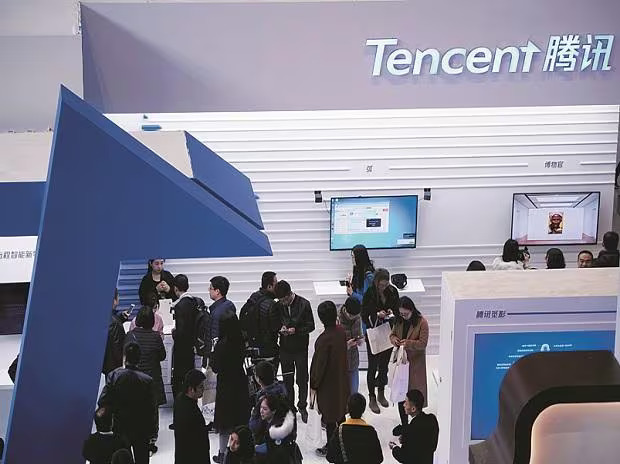On December 22, Tencent Holdings spearheaded an unprecedented $80 billion downturn in China’s digital sphere, sparked by the unanticipated enforcement of fresh gaming restrictions. The announcement, issued by the top gaming regulator, aimed to curb excessive spending and time commitment within gaming platforms.

Image Source: business-standard.com
The new regulations encompass a spectrum of limitations, from capping individual in-game expenditures to prohibiting incentives for frequent log-ins and compulsive player challenges. This move evoked vivid memories of the 2021 tech industry crackdown, which disrupted sectors like e-commerce and education, deeply impacting companies like Ant Group Co. and Alibaba Group Holding Ltd.
Investor Bewilderment and Market Fallout
Tencent, along with counterparts NetEase Inc. and Bilibili Inc., witnessed staggering drops in market value, signaling investor concern about the unforeseen and ambiguous nature of the regulatory changes. Developers and designers flooded social platforms with confusion and outrage, particularly perturbed by the undefined spending caps that could severely impact revenue streams reliant on in-game purchases.
Lingering Apprehension and Industry Outlook
Industry analysts and market participants expressed apprehension about potential future measures targeting the internet sector, paralleling past stringent actions against various industries. The regulatory interventions, although ostensibly focused on gaming addiction and cultural preservation, sent shockwaves across investors and industry insiders, prompting concerns about the broader implications for market stability and growth.
The ambiguous wording of the regulations left stakeholders grappling with uncertainties, with the rules lacking clarity on their commencement and potential revisions based on public feedback. While Tencent’s reassurances about maintaining operational continuity provided some solace, skepticism prevails amidst fears of prolonged regulatory pressure on the digital landscape.
Impact on Global Gaming Paradigm
Beyond China’s borders, these developments might signal a shift away from the prevalent freemium model, potentially influencing international gaming policies concerning addiction and in-game spending. Analysts foresee a domino effect, prompting other countries to contemplate measures against addictive gaming practices.
The resilience or reversal of these stringent measures remains contingent on public response and ongoing discussions between stakeholders and regulatory bodies. As the industry braces for a potentially transformative phase, the implications of China’s regulatory stance on its colossal digital market will reverberate globally, influencing future gaming paradigms and regulatory frameworks.

I am a law graduate from NLU Lucknow. I have a flair for creative writing and hence in my free time work as a freelance content writer.